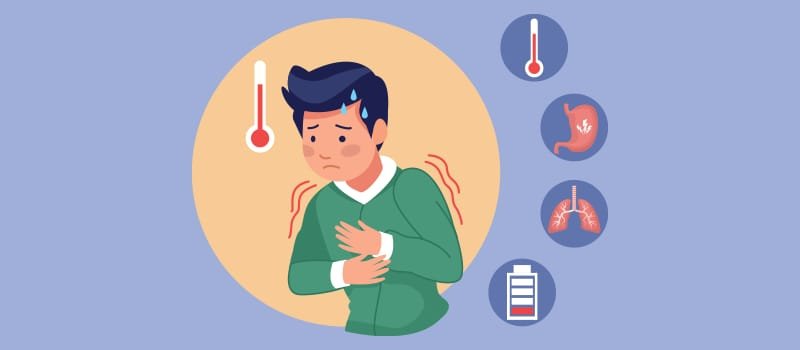Fever-Fever is a rise in body temperature above the normal temperature, usually caused by infection. Normal body temperature is around 37°C (give or take a degree, but this can vary from person to person). There may also be minor fluctuations over the course of the day and night.
Cold-The common cold is an illness affecting your nose and throat. Most often, it’s harmless, but it might not feel that way. Germs called viruses cause a common cold. Often, adults may have two or three colds each year. Infants and young children may have colds more often.
Cough-Coughing is a normal and healthy reflex. It helps your body clear your airways of mucus, smoke, and other irritants. But constant coughing can take a toll. It may interrupt your sleep, work, and activities, hurt your chest, and tire you out. When infected or irritated by a cough or sore throat, the cells in your upper airways (nose and throat) trigger your immune system to help fight back. You can get relief from the symptoms by working to reduce the inflammation.
- Diarrhoea-Diarrhoea is loose, watery and possibly more-frequent bowel movements — is a common problem. Sometimes, it’s the only symptom. At other times, it may be associated with other symptoms, such as nausea, vomiting, abdominal pain or weight loss.
- Headache-Headache is pain in any region of the head. Headaches may occur on one or both sides of the head, be isolated to a certain location, radiate across the head from one point.
- Colic-People may experience sudden, severe abdominal pain that can last for a few minutes up to 5 hours. The pain occurs in the center of the upper abdomen or just under the ribs on the right-hand side. The pain can also spread to the side or shoulder blade.
- Injury-An injury is damage to your body. It is a general term that refers to harm caused by accidents, falls, hits, weapons, and more.

